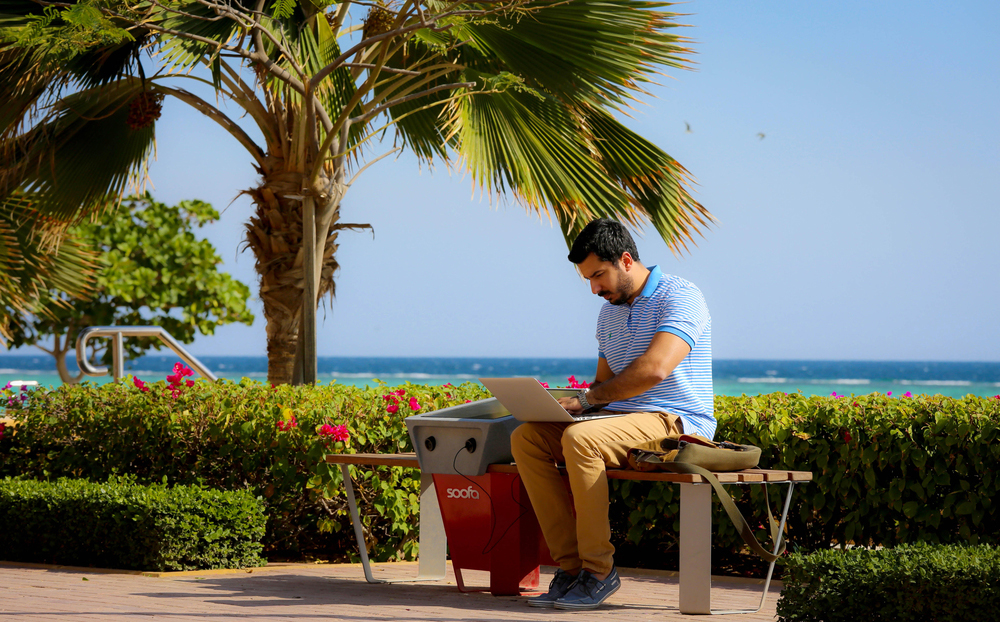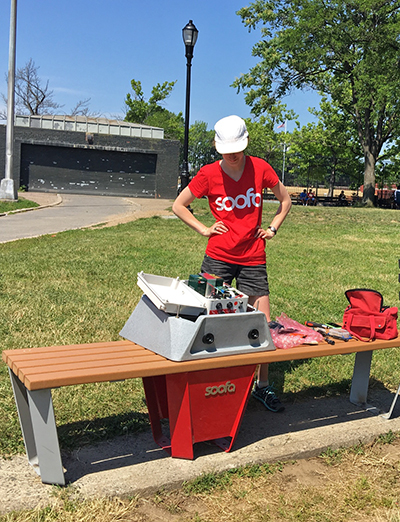Smart Urban Furniture Makes Smarter Parks
-
-
slice.mit.edu
Filed Under
Recommended

“Your cell phone doesn’t just make phone calls, why should our benches just be seats,” says Boston Mayor Marty Walsh about the benches that are dotted around Boston and Cambridge.

“We're doing something very unique…we’re engaging with the smart cities concept at a community level,” says Katy Gero ’13, an engineer who started working at Soofa in February in product development, designing electronic prototypes for pilot projects and doing data analysis to understand how people move through the parks and other public space. “We want to make cities a better place and as technology starts to change the urban landscape, citizens should be aware of what's going on and be active participants.”
One of the best parts of the job, says Gero, is interacting with people at the Soofa benches. As she often does maintenance or installs prototype devices on the local benches in Cambridge, she gets to hear firsthand feedback. “People of all types of demographics in Central Square LOVE the bench there, they always thank me for it and tell me how they use it every day,” she says.
The Soofa bench, which serves as a valuable amenity for the public, is also taking advantage of their central locations to help inform cities on the use of their public spaces. The latest version of the bench, which includes sensors and tracks engagement, was implemented in New York City’s recently opened Highbridge Park in June. “They are interested in seeing generally how people use the park,” says Gero. “Where are the popular entrances? How does usage vary across the park? Across the week? They are great partners because they're thinking both at the micro-level of how to best allocate resources in the park as well as at the macro-level of how this information can inform future park design and long-term strategy.”
The benches can provide information on bench and charger-usage and, with an embedded Wi-Fi scanner, can even pick up signals from devices nearby to collect data on foot traffic and overall park usage patterns, which is valuable and currently hard-to-measure information. "There is the potential to understand how people are moving through the park,” said NYC Parks Department Director of Data Analytics Jackie Lu. “If you see the same devices walk by multiple benches, then you start to understand flow through the park.”
In addition to the Soofa Bench, the company also has different versions of their product, including a charging station without a bench as well as kiosks that can be installed at busy bus stops and can give public transportation updates and projections.







